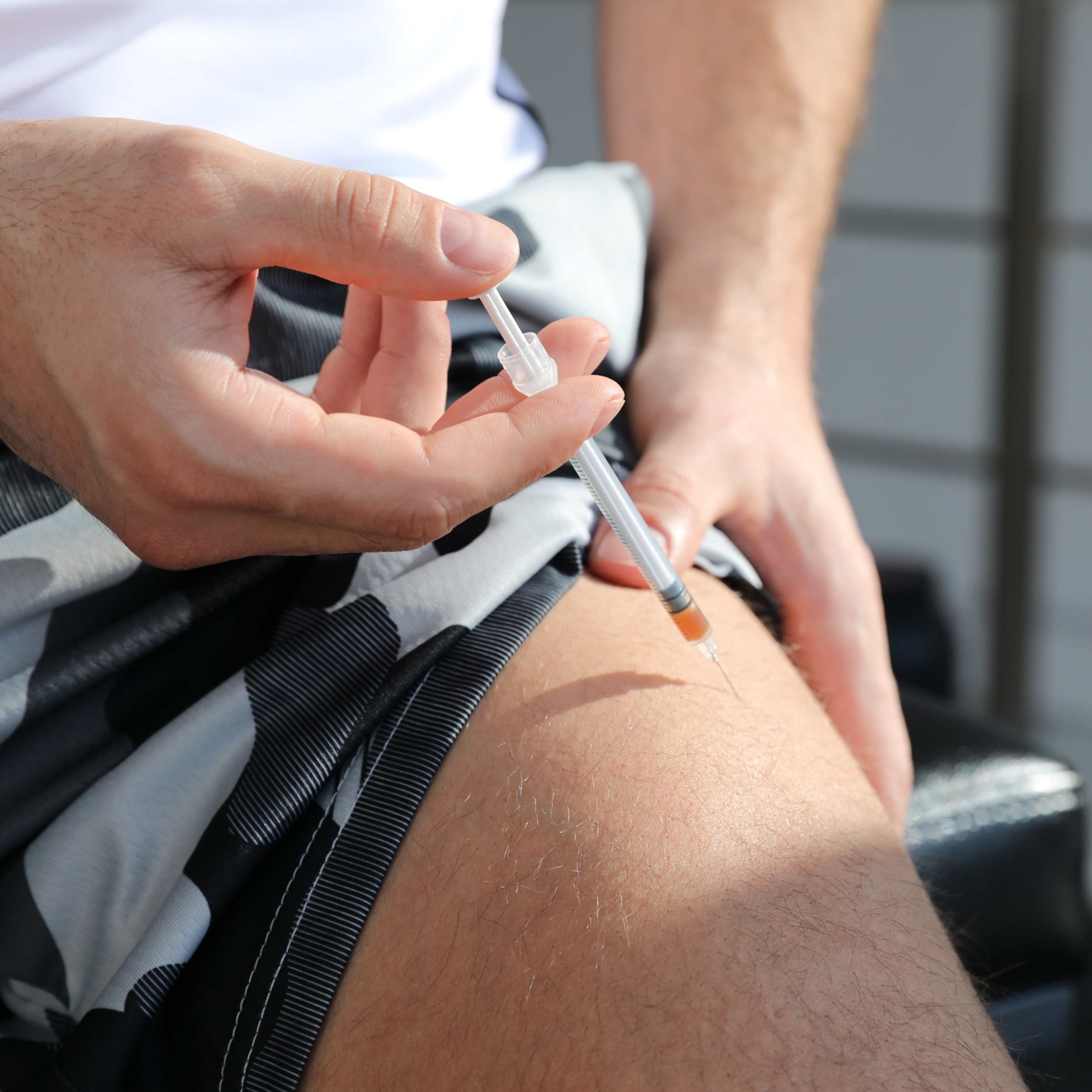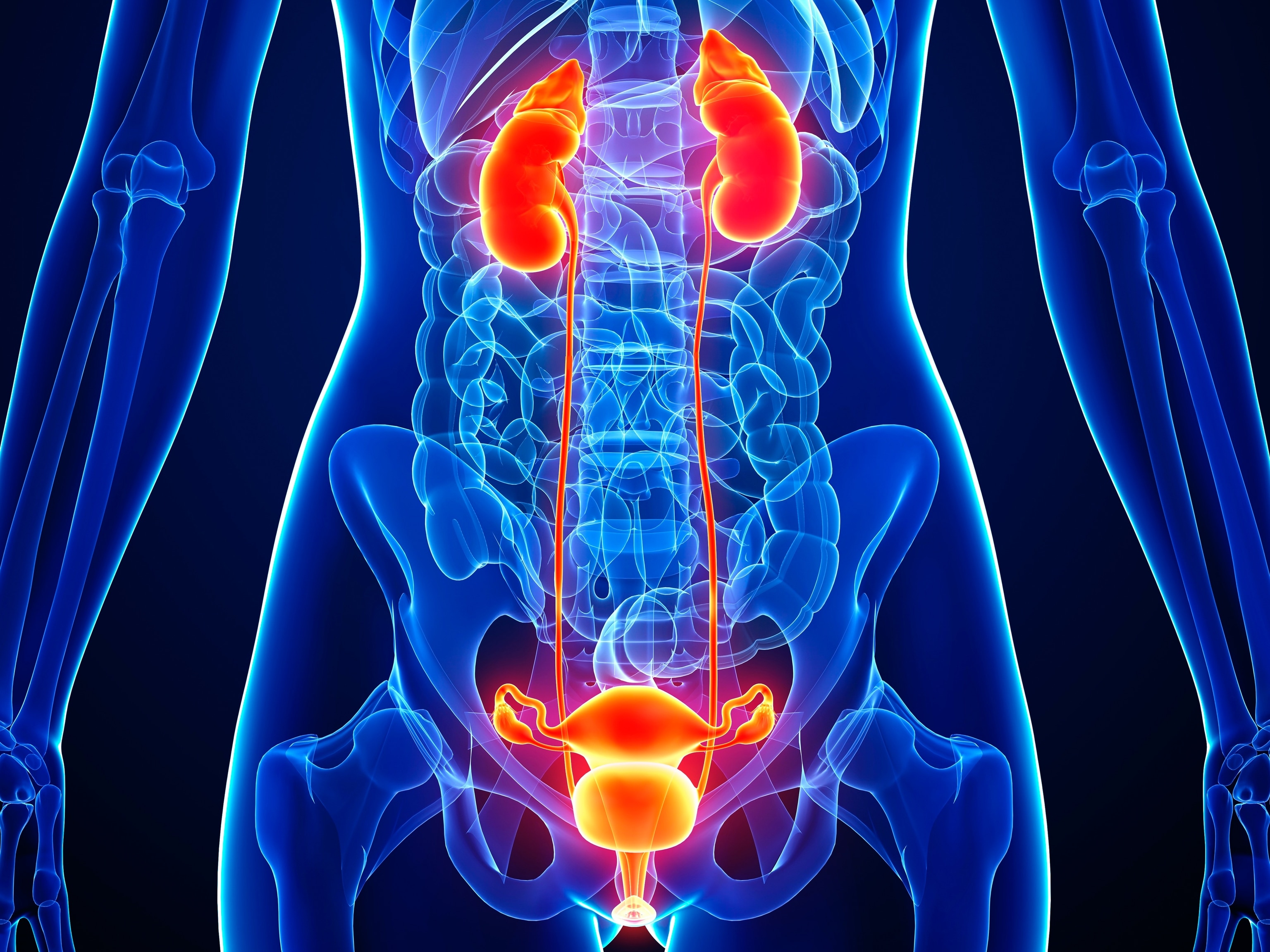Men have biological clocks too. Here are 5 myths about male fertility.
Should men trying to have kids avoid hot tubs? Do boxers vs. briefs impact sperm counts? Here's the real science behind male fertility.

Roughly 15 percent of American couples have trouble conceiving. Until as recently as a decade ago, the focus fell squarely on the woman. Men avoided seeing a doctor, fertility experts say, or, if they were dragged in by their partner, silently prayed the problem wasn’t theirs.
In many cases, “it's a virility thing,” with men erroneously fusing fertility with masculinity, says Stan Honig, a urologist and chief of reproductive and sexual medicine at the Yale University School of Medicine.
Today, things are starting to change. “More men are finally getting the fertility treatments they need,” says Leon Telis, director of the men’s health program at Mount Sinai Hospital in New York
(Sperm counts worldwide are plummeting faster than we thought.)
In part, this is because treatments options have improved. And with a spotlight on plunging sperm counts worldwide (for reasons that remain unclear), more men recognize their role in fertility issues and are open to care. Another major assist is the growing number of home analysis test kits, which let men procure and evaluate semen in their own bedroom rather than over a magazine in a lab. Some laboratories also offer sex hormones testing without a prescription.
“The way we see patients now is a lot different, because many come in and say their sperm test results are abnormal, and maybe that their hormone levels are too,” rather than waiting for a doctor to run the tests, Honig says. Doctors then conduct more thorough evaluations in their office to get to the source of fertility issues and recommend treatments.
Still, despite the increased awareness, myths and misinformation about male fertility abound. Here are some that reproductive health doctors frequently hear—even from their own patients.
Myth #1: Most infertility stems from the woman
Men may be solely responsible for a couple’s infertility only 20 percent of the time, but they contribute in another 30 to 40 percent of cases. “There’s a better understanding in society now that men are the problem in infertile couples up to half the time,” Telis says.
Some of the most common issues involve sperm, including low counts, abnormal swimming, or incorrect shapes. Around 39 million per ejaculate is considered normal. “They say you only need one, but I say you need a functioning army to get the one there,” Honig says, explaining that some help it through the cervical mucus or perform other tasks.
Biological conditions, hormonal issues, and other factors can also impact male fertility. Scientists continue to uncover possible causes, such as having rare genetic conditions or disturbing the microbes that naturally live in male genitals.
Myth #2: A man’s age is irrelevant
While recent celebrity fathers over the age of 70 like Kelsey Grammer and Al Pacino might give the impression that only women have biological clocks, new research has shown that men have them, too.
In the past, scientists studying how paternal age impacts fertility have gotten mixed results, in part because the female partners of older men also tend to be older.
For a new study, researchers at a group of European fertility clinics took women out of the equation; they analyzed men undergoing advanced reproductive techniques that used young women’s donor eggs. Most produced health-looking sperm and, subsequently, quality embryos. But age differences soon appeared.
Miscarriage rates turned out to be significantly higher and birth rates lower in the men over 45, with 35 percent of procedures resulting in a baby compared with 41 percent for younger men. They presented their results at a European medical conference but have not yet published the full results in a peer-reviewed medical journal.
Conventional tests didn’t detect differences in sperm number, concentration, and swimming ability, but the woman’s body seemingly spotted problems after the embryo was implanted, says Maria Cristina Guglielmo, coauthor of the study and an embryologist at Eugin Italy, which has clinics across Europe. One possibility is that the body is picking up on breaks in the sperm’s genetic material, known as DNA fragmentation, which men over 40 are more likely to have.
“Our study challenges the traditional assumption that the sperm from older men is good enough,” Guglielmo says.
Just as aging women who want future children might preserve their eggs, some men should consider preserving their sperm, says Mariabeatrice Dal Canto, a biologist at the fertility company and another study coauthor.
Myth #3: Testosterone is an effective fertility treatment for men
The testicles need high levels of testosterone to produce sperm. But taking supplemental doses of the hormone increases blood levels, and that causes the testicles to slow their own natural testosterone production.
“Taking testosterone is actually the worst thing you can do if you’re trying to get pregnant,” Honig says. “It lowers the sperm count, sometimes to zero.” Supplemental testosterone is so good at dropping sperm count that researchers are evaluating its potential as part of a male birth control.
Three months after stopping testosterone—the time between a sperm’s manufacture and its exit in ejaculated semen—levels have generally rebounded. But not for everyone, especially recreational athletes taking high quantities to help with their performance, who may continue experiencing reduced sperm motility.
Men who take testosterone are often unaware of the connection. This is why some 15 percent of men who’ve taken the drug regret doing so. “It's not uncommon for me to see two or three patients a week who didn't know their testosterone was shutting off their sperm production,” Honig says.
Men who don’t produce enough testosterone in their testicles can benefit from other forms of hormone therapy, though. Hormones like clomiphene citrate, follicle-stimulating hormone, or luteinizing hormone stimulate testosterone production where it is needed. Eighty percent of men taking a combination of hormonal drugs improve lagging testosterone levels.
Myth #4: Most fertility therapies target the woman
Aside from hormone therapy, other medications aid male infertility by boosting low libido or slowing premature ejaculation. Dietary antioxidant supplements, including lycopene, zinc, coenzyme Q10, and vitamins C, D, and E, can all boost sperm production.
If the problem is mechanical, doctors can perform surgical procedures to remove cysts, repair ducts, shrink enlarged veins, or fix other plumbing glitches.
Even treatments that largely focus on women can improve male fertility issues, too. When undergoing in vitro fertilization, where eggs are removed and fertilized outside the body, for example, pregnancy rates significantly rise when the sperm is inserted directly into the egg rather than asked to get there on their own. Newer tests can also evaluate the DNA of individual sperm to select those most likely to succeed.
(IVF revolutionized fertility. Will these new methods do the same?)
In addition to improving conception odds, another reason men should be evaluated by a physician when they have trouble conceiving is that infertility can be a symptom of other health conditions, including testicular cancer and hypertension.
Myth #5: Lifestyle factors aren’t as important for men
Toxins, especially from alcohol and tobacco, can heavily affect sperm health. “What I tell patients is that anything in moderation is probably okay. A glass of wine or beer a few times a week at night, a cigarette or a joint every once in a while, that's not a problem. But if you’re a heavy smoker or drinker, stopping can make a difference,” Honig says.
(Does cannabis affect your fertility?)
Body size and activity matter too. Men with high body mass indexes are more likely to have issues with sperm motility. Physical exercise boosts sperm production, but here, too, moderation is best, as overly strenuous training can disrupt hormones.
Studies in animals and humans have shown that certain chemicals in the environment can worsen male fertility, including microplastics, phthalates, and bisphenol A. But because some of these chemicals are so pervasive, they can be difficult to avoid.
That old saying to steer clear of hot tubs and saunas is correct. Sperm thrive in 97-degree heat—which is why the testicles are descended below the 98.6-degree body. Excess heat is also the reason it’s best not to do computer work with a laptop directly on the thighs.
But boxers versus briefs? Studies have not found that underwear choice impacts fertility.
The most important thing is recognizing that men can do many things to boost their fertility. “There's a lot we still don't understand,” Telis says. But what is clear is “men are part of a team, as important as women when it comes to conception.”







